
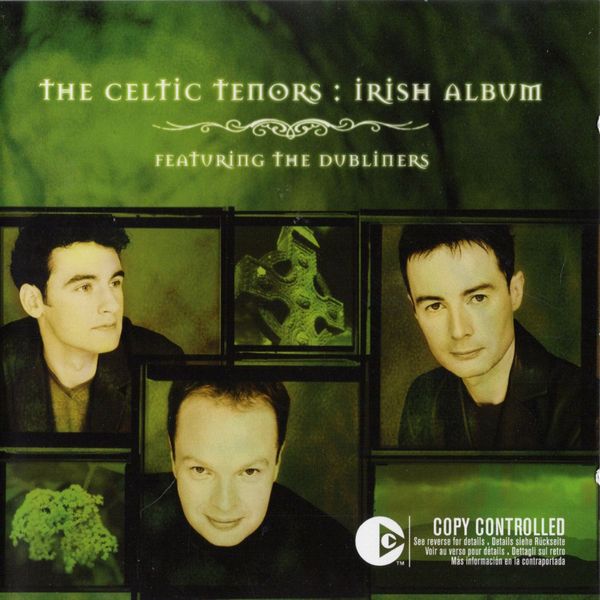 |
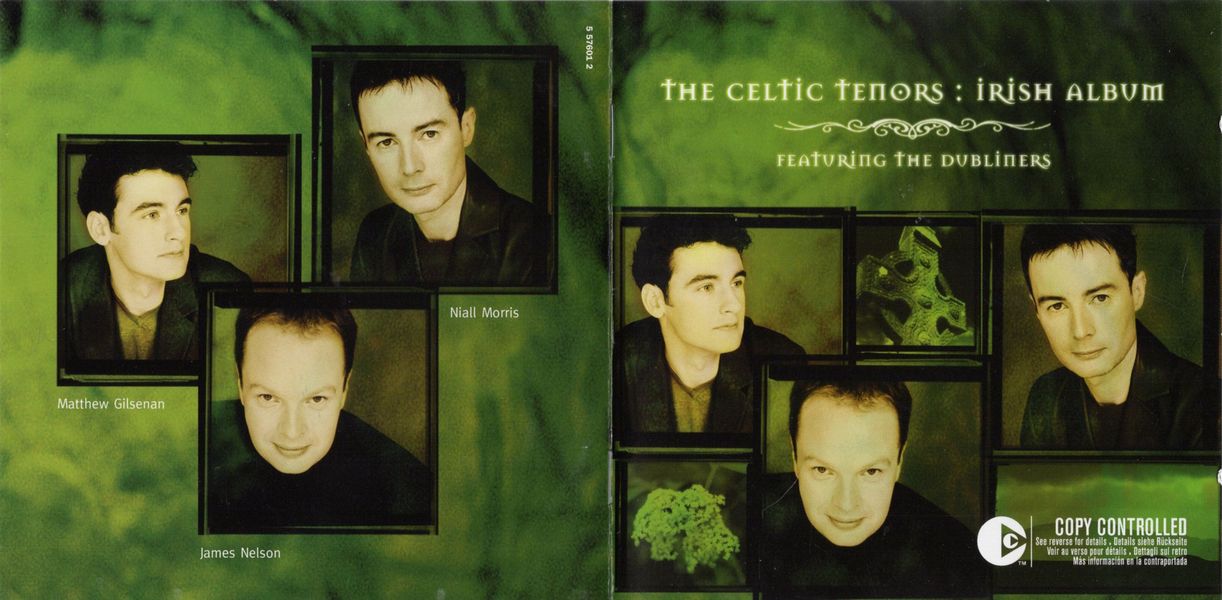
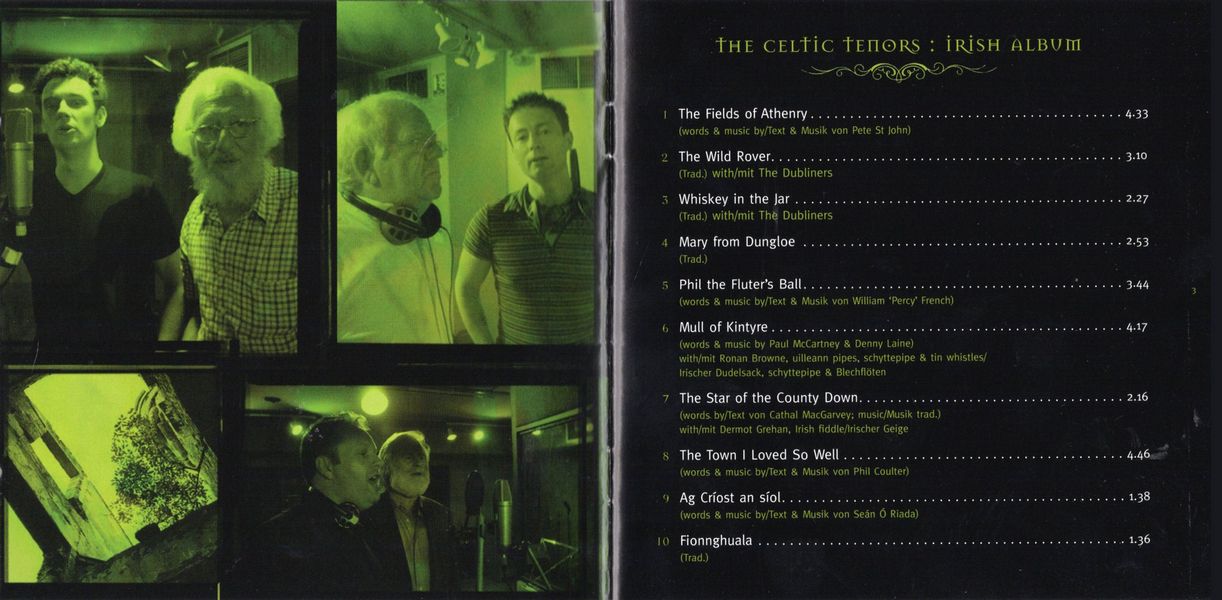 |
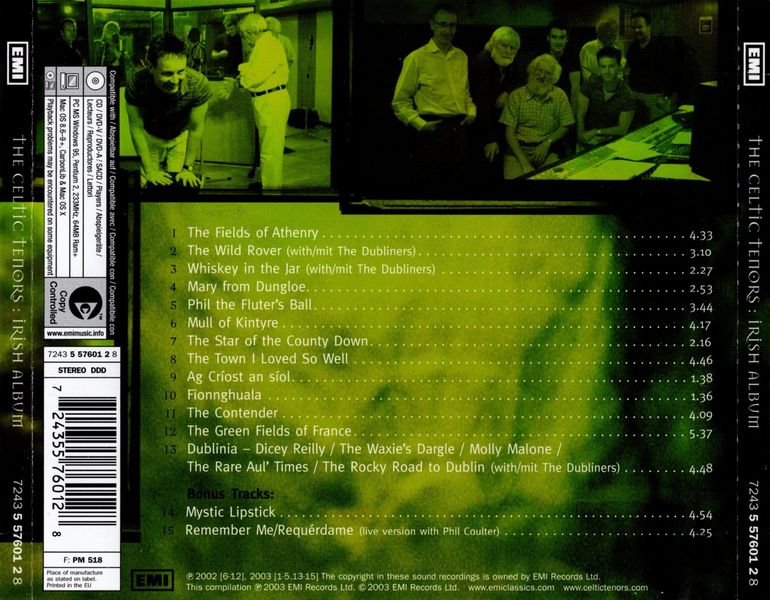
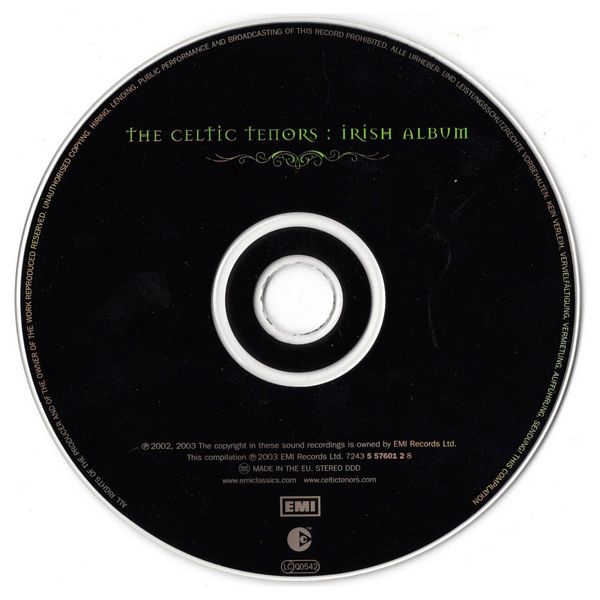
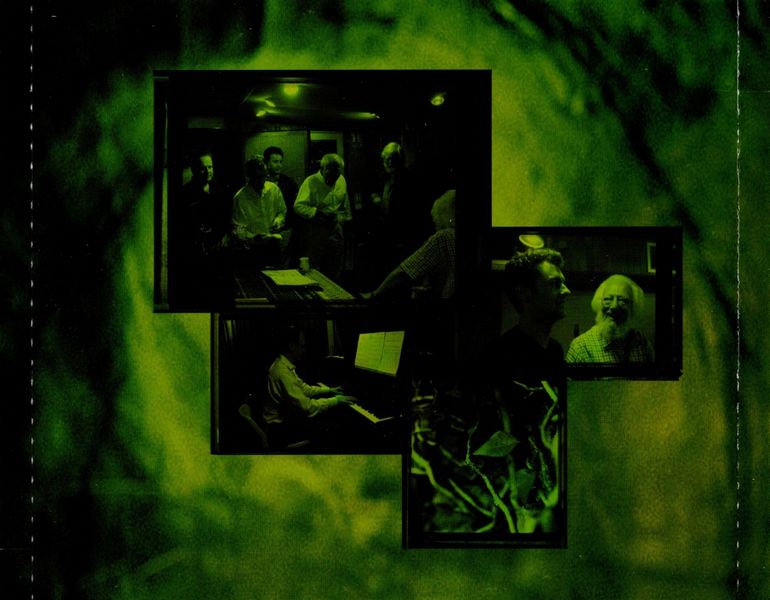
|
| more images |
Sleeve Notes
The Fields Of Athenry — Pete St. John wrote this Irish classic in 1979, but the words can be traced back to a ballad published in the 1880s. Our own Paddy Reilly made the song a hit when impresario Jim Hand discovered it for him, and since then it has gone on to be adopted as the anthem for many sporting organisations. It tells the poigant story of a man in 1846 who is deported to Australia for attempting to steal corn to feed his family during the famine. Niall
The Wild Rover — When I was twelve, I played the lead in a joint production (the Christian brothers boys' school and the local convent girls' school) of a show called The Wild Rover, which summarises the general story. I sang it then in my high soprano voice. We recorded the piece with Ireland's own prodigal sons The Dubliners; Paddy Reilly sings the role of the older returned son admirably. Thanks guys — it was a blast !!!!! Matthew
Whiskey In The Jar — Thin Lizzie changed the course of Irish rock music for ever when they released Whiskey in the Jar in 1972. Eric Bell's melodic and virtuoso guitar playing and the sheer rockin' treatment meant that never again would it be taboo to treat our great old Irish songs in ways other than the accepted tradition. This pushed the door open for the rest to follow, from Rory Gallagher to the Pogues to Sinéad O'Connor. The Irish conscience now understands that if these classics are to survive they must stand the heat of the smithy's forge of new styles. Matthew
Mary From Dungloe — Mary is to Donegal what Rose is to Tralee, for every year the small Irish town of Dungloe hosts a beaty contest named after its most famous song. And just as in Kerry where the winner becomes the Rose for that year, in Donegal there is great excitement to know who the next Mary will be. Niall
Phil The Fluter's Ball — William 'Percy' French (1854 - 1920) was born in County Roscommon. Aside from being the 'Inspector of Drains' in County Cavan, he was a writer of dramatic verse and monologues, a banjo-player and a fine watercolour artist. However it is for his songs he is best remembered, and in particular his comic ones. Phil the Fluter's Ball vividly paints the scene of a country dance and its colourful array of characters. James
Mull Of Kintyre — This is my earliest memory of a 'you can do it too' pop song: I was aged ten, and ably strumming out the Wings version on my autie's guitar. The song came to be almost reviled because of excessive radio play; now I think the time is right to give it another go. Matthew
The Star Of The County Down — One of the best-loved up-tempo tunes in the Celtic tenors repertoire, this version of the English forlk tune Dives and Lazarus was a favourite of the late John McCormack. We hope our somewhat contemporary setting, with its use of slide guitars and the like, doesn't make the great Count turn in his grave! James
The Town I Loved So Well — Phil Coulter's classic song about the violence and destruction that nearly ruined his beloved home town of Derry in Northern Ireland has perhaps acquired a more universal relevance around the world since the atrocities of 11 September 2001. It is a hard-hitting song about the corrosiveness of violence and of man's apparently unceasing ability to inflict pain and suffering on his fellow man. Ultimately, though, it is a moving anthem of peace and reconciliation. Niall
Ag Criost An Siol — This popular spiritual piece by the great Seán ó Riada talks of life as a seed which flowers, grows old and dies, only to experience rebirth in Heaven. I used to sing it as a child at my local church. Matthew
Fionnghuala — An example of puirt-a-beul ('mouth-music'), a popular Scottish folk form in which instrumental dance tunes — strathspeys, reels, jigs — are sung to words, often satirical or in nonsense- rhyme. Such pieces were possibly danced to when no instrumentalist was available. Fionnghuala was a popular number with The Bothy Band, a group that had a real influence not only in my own musical tastes but also in the direction of traditional Celtic music worldwide. Matthew
The Contender — This tells the story of a superstar of the 1930's and '40s, Jack Doyle. Jack was born in Cobh, near Cork City, where he made a reputation as a brilliant boxer and a fine tenor. In 1933, at a time when he was earning £ 600 a week as a singer, he could draw 90,000 fans to London's White City to watch him fight. His only vice was alcohol. He married a famous Mexican actress Movita, and they raised hell together, but a growing drink problem proved too strong for Jack; he struggled with it until he died, destitute and shoeless, on the streets of London in 1978. Jimmy MacCarthy's songs have a unique depth and beauty which show that the bard is alive and well in Ireland. Matthew
The Green Fields Of France — The incredible voice of Finbar Furey brought this song very much into the public eye in Ireland. The grave of a 19-year-old soldier killed at the Battle of the Somme in 1916 underlines the tragedy of war and of every soldier going into battle: 'Did they really believe that this war would end wars?'. James
Dublinia — Eamonn Campbell of the legendary Dubliners is a producer on our album, and Niall was born and bred in Dublin, so it seemed right and proper to record a selection of tunes from our nations's capital — 'Dublinia' — classics such as Molly Malone and Pete St. John's The Rare Aul' Times, as well as songs telling of a young man's journey up from the country (Tuam) to the 'big smoke' ( The Rocky Road To Dublin), an invitation to Bray in County Wicklow for the annual outing of the Dublin Candlemakers ( The Waxie's Dargle), and a lady with an obvious drink problem ( Dicey Reilly) who is nonetheless the life and soul of the party. James
Bonus Tracks
Mystic Lipstick — A tapestry of lyrical magic as only Jimmy MacCarthy can weave. A mythical love song to an ancient Celtic princess — that's how Jimmy sees his beloved Eire. A beauty eyond beauty, a woman and land created by God's own hand, a love song crafted with such wonder you feel you must be part of this Celtic dream. The track was produced by Jimmy himself and was the first single recorded by the group. As producer, Jimmy felt the Tenors' love of harmonies would make them unique, and so it has proved. Pat
Remember Me / Requérdame — This classic love song has contributed more than any other to the success of The Celtic Tenors. Written by Phil ('The Town I loved So Well') Coulter especially for the Celts, it has been, and will continue to be for the rest of their careers, the outstanding number in their stage set. It never fails to get a huge response, with standing ovations the norm. The tale of war heroes the night before battle longing to be in the arms of loved ones can honestly leave the hair standing up on the back of your neck. Sheer Brilliance! The boys perform the song with passion and emotion, leaving it right up there with the great pop classics like You've Lost That Loving Feeling. Despite numerous other cover versions, no-one has come near my favourite song by the Tenors and Phil Coulter. Pat